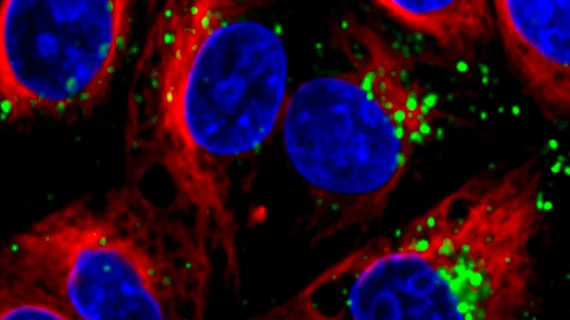Nanoplatform developed with 3 molecular imaging modalities may improve cancer diagnosis
A new hybrid nanoplatform that simultaneously uses three types of imaging modalities—MRI, CT and fluorescence optical imaging—to locate tumors could give a newly improved edge to molecular imaging and tumor diagnosis.
The innovative imaging technology developed by researchers at the Complutense University of Madrid (UCM) in Spain may improve medical diagnosis through a single contrast medium and provide more precise results with higher resolution, sensitivity and the capacity to penetrate human tissue, according to a recent university press release.
"Our nanoplatform is designed to enable multimodal molecular imaging, thus overcoming the intrinsic limitations of each single image modality while maximizing their advantages", lead author Marco Filice, PhD, a researcher in chemistry and pharmaceutical sciences at UCM, said in the release.
Although the platform targets solid cancers, its flexibility allows it to be modified to expand to detect more types of cancers.
“[These nanoparticles] have two opposing faces, one of iron oxide embedded in a silica matrix that serves as a contrast medium for MRI and another of gold for CT,” Alfredo Sánchez, PhD, a researcher in the UCM Department of Analytical Chemistry and the first author of the study, said the statement.
Additionally, the researchers noted that a molecular probe sited in the golden area permits fluorescence optical imaging while a peptide selective for hyperrepressed receptors in tumors (RGD sequence) and sited on the silica surface enveloping the iron oxide nanoparticles identifies the tumor and makes it possible to direct and transport the nanoplatform to its target.
After synthesizing the nanoparticles and determining their characteristics and toxicity levels, the researchers injected them into mouse models which produced accurate, precise imaging results for each modality tested.
The research was published online in ACS Applied Materials & Interfaces

